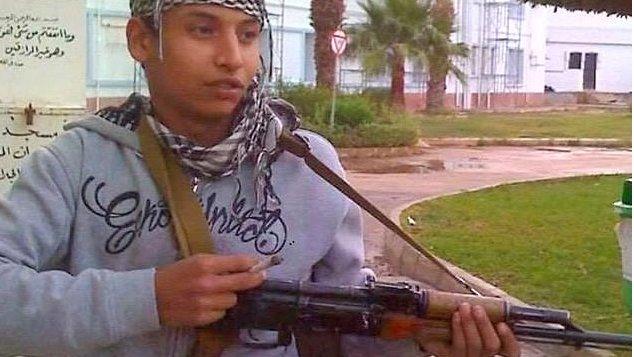Reading attacks: Charity workers say 'nobody listened' to Saadallah warnings
- Published
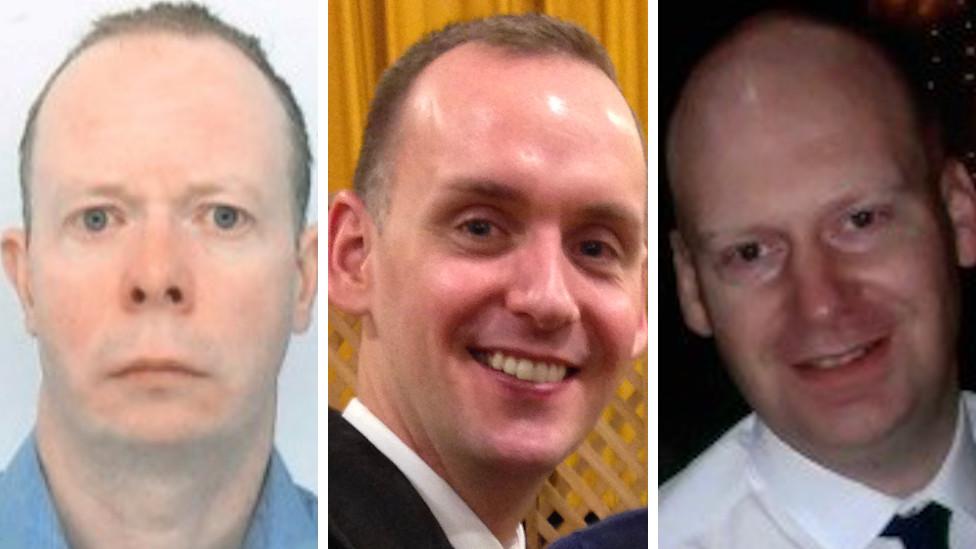
(L-R) David Wails, Joe Ritchie-Bennett and James Furlong died at the scene of the attack in Forbury Gardens
Warnings about a man who went on to stab three men to death in a Reading park were ignored, two charity workers have said
Khairi Saadallah murdered James Furlong, Joe Ritchie-Bennett and David Wails in Forbury Gardens in June 2020.
He was convicted under anti-terror laws and given a whole-life term in 2021.
An inquest concluded the men's deaths were avoidable, after the coroner found major problems with intelligence sharing between authorities.
Charity workers Nick Harborne and Ellie Pollitt have told the BBC of their "repeated warnings" about the danger Saadallah posed.
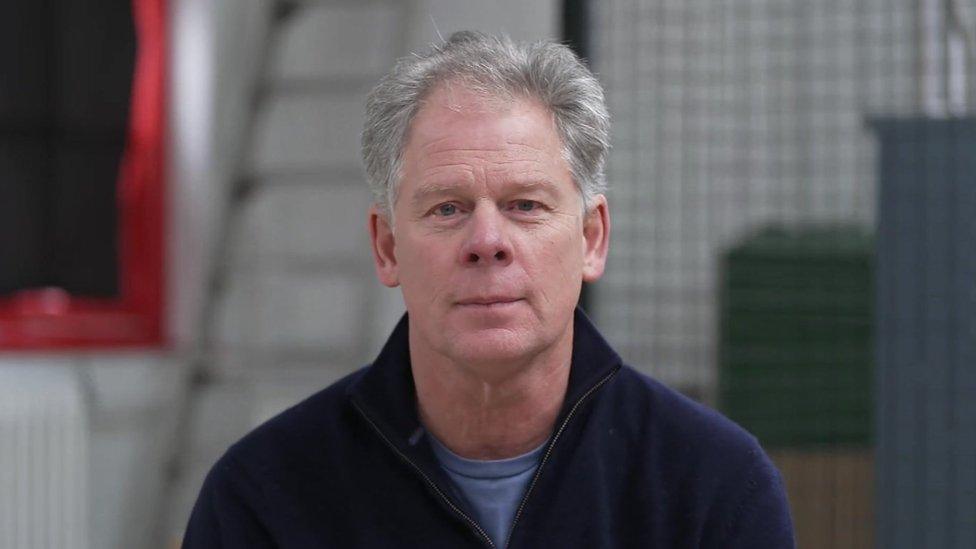
Nick Harborne started supporting Saadallah in 2016, in his role as CEO of Refugee Support Group
Mr Harborne, who gave evidence during the inquest, started supporting Saadallah in 2016 through his role as CEO of Refugee Support Group.
He contacted several organisations, including Berkshire Healthcare NHS Foundation Trust, asking for better mental support for the Libyan refugee and warned Saadallah was at risk of being radicalised in prison.
In the four years before the Forbury Gardens attack, Mr Harborne said Saadallah was "lost, troubled and didn't know what to do".
He said: "I tried to raise my concerns where I could. Ultimately, with hindsight, you could say nobody listened. Did we do enough collectively? Clearly the answer is no."
Ms Pollitt worked for a homelessness charity in Reading and explained that she met Saadallah on several occasions.
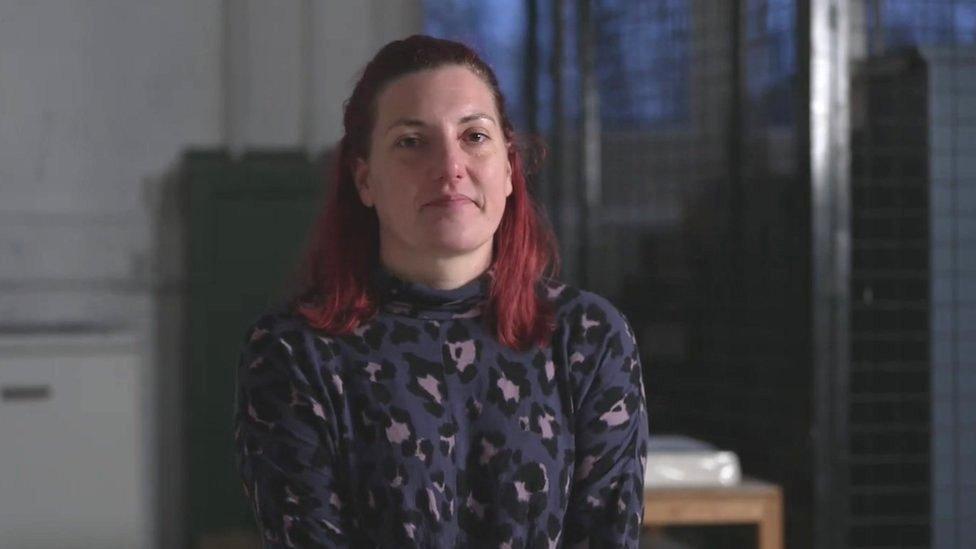
Ellie Pollitt worked for a homelessness charity in Reading and met Saadallah on several occasions
She said: "I thought he was capable of, I think I used the word 'atrocity'. I'd even said that he said himself he was a martyr.
"I do remember how vulnerable he seemed but equally how uncomfortable he made me feel."
She said she "felt intuitively" Saadallah was "capable of something sinister" and that she was "tearing her hair out" because it felt like "nothing was being done to manage that risk".
Ms Pollitt added: "I even said in one email [to the probation service] I was surprised he wasn't sectioned before his remand to prison under the mental health act, because of him being a risk to others or himself."
Saadallah arrived in the UK in 2012 as a teenage refugee, having fought in the Libyan revolution, suffering from PTSD, among other conditions.
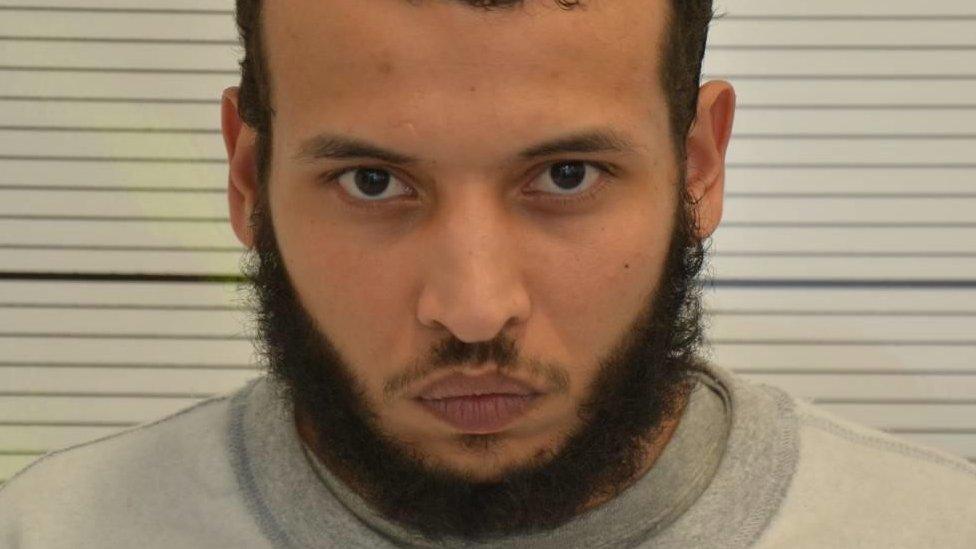
Saadallah "executed" the men as an "act of religious jihad", the Old Bailey previously heard
The inquest heard he had extensive contact with mental health services but Judge Coroner Sir Adrian Fulford said he had been "caught in a catch-22" with no continuity of care.
Sir Adrian concluded it was "at least possible" Saadallah would never have attacked the men if his mental health had been correctly managed by authorities.
Ms Pollitt said she believes part of the problem is turnover of staff, "particularly in statutory workforces".
She said: "Partly because of case load numbers, partly because of lack of training, partly because of lack of resource - and funding has never been worse."
Counter Terrorism Policing, the Probation Service and Berkshire Healthcare NHS Foundation Trust were among the organisations criticised for failing Saadallah during the inquest.
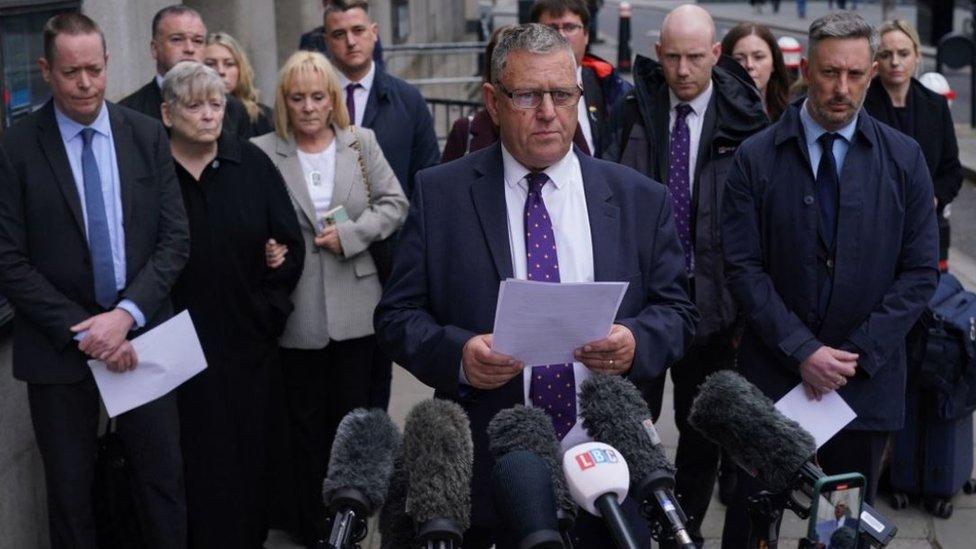
Gary Furlong read a statement after the inquest proceedings concluded
James Furlong's father, Gary, has said it was "clear" there was "failure after failure" by state agencies.
Speaking outside the Old Bailey after the inquest, he said: "Our boys didn't stand a chance."
Mr Harborne said James Furlong's parents had previously thanked charity workers for their work supporting refugees and asylum seekers.
He said: "That just humbled me, levelled me with their sort of compassion that they could come and thank the organisation that supported the guy who went and murdered their son."
A spokesperson for Berkshire Healthcare NHS Foundation Trust previously released a statement saying there had been "significant learnings" in the trust since the attack.
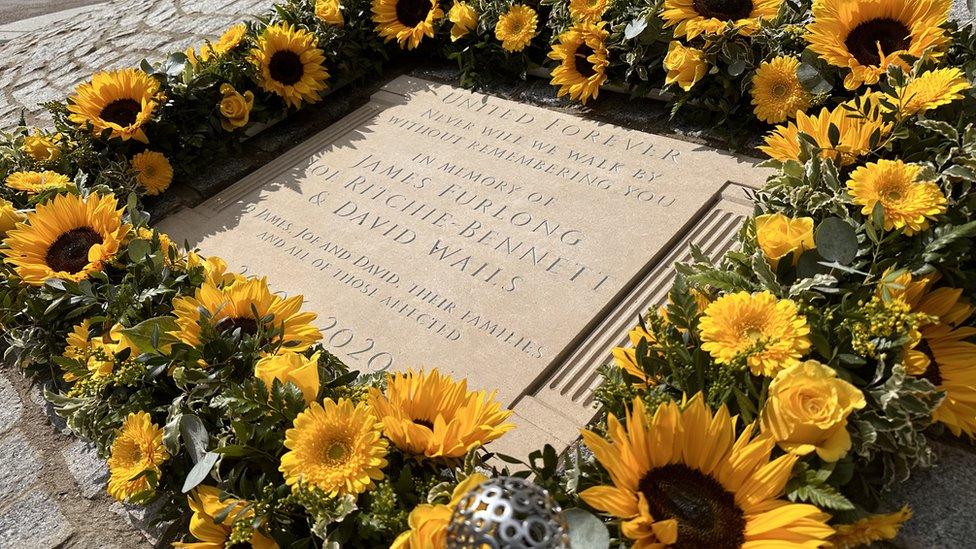
A memorial to the three men killed by Saadallah was unveiled at Forbury Gardens' bandstand in 2023
Assistant Chief Constable Tim Metcalfe from Counter Terrorism Policing South East and Thames Valley Police, said "there is still work to do" but they had an "unrelenting commitment to learn".
Some of the lessons learnt from the inquest, Mr Harborne said, should be to "look at the relationship between charities and the statutory sector".
He said: "Sometimes voluntary sectors can come across a bit pushy, because they're trying to do the right thing by their clients, but they're doing so from a disadvantage of not knowing all the facts.
"If we think they are really important to flag them up - you need a system that can investigate that."
The BBC has contacted the relevant authorities for comment.

Follow BBC South on Facebook, external, X, external, or Instagram, external. Send your story ideas to south.newsonline@bbc.co.uk or via WhatsApp on 0808 100 2240, external.
- Published26 April 2024

- Published11 January 2021
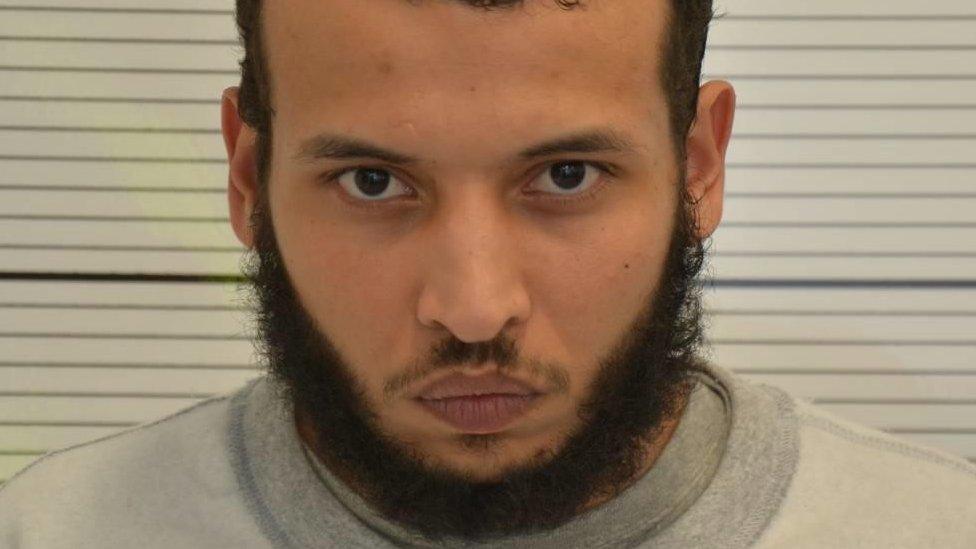
- Published19 February 2024

- Published14 February 2024

- Published24 January 2024

- Published23 January 2024

- Published5 June 2023

- Published11 January 2021
